Sober living
İdman mərclərində bank idarəetməsi – Betandreas istifadəçiləri üçün təvsiyələr
Mərc limitlərini düzgün idarə etmək, investisiya portfelinin stabil bir şəkildə saxlanılmasında kritik bir rol oynayır.
Bank idarəetməsi, uzunmüddətli məqsədlərə nail olmaq üçün əhəmiyyətli bir amildir. Bu prosesdə doğru qərarlar verilməsi və risklərin minimize edilməsi əhəmiyyətli rol oynayır.
Mərc limitləri təyin edilərkən, fərqli investisiyon şərtləri və risk dərəcələri də nəzər ələ alınmalıdır.
Əhəmiyyətli Təlimatlar: Bədcə Planlaması və Bank İdarəetməsi
Büdcə planlaması idman mərclərində əhəmiyyətli bir rol oynayır, uzunmüddətli strategiyalar və mərc limiti təyin ediniz. Bank idarəetməsi mühüm bir amildir, idarəetmə qabiliyyətini artırmaq üçün bu prinsiplərə əməl etmək vacibdir.
Uzunmüddətli strategiyaların effektiv idarə edilməsi
Güclü bir bükə planlaması və qazancın qorunması üçün bank idarəetməsi vacibdir. Bu, sizi mali cəhətdən sələngəyə qarşı daha müdafiəli edir və peşmanlıqla sürətlənən pəncərədə mükafat almaq üçün geniş uzunmüddətli strategiyalar qoyur.
- Büzən planlaması
- Əmanətlərin qalınlaşdırılması
- Risklərin idarə edilməsi
- Dəyərlərin qorunulması
Maliyyə hesabınızı məhfin etmək üçün işlənmiş təlimatlar
Bütün maliyyə planlaması inkişaf edir və hər şey qazancınızın qorunması ilə başlayır. Bu mərc limiti və uzunmüddətli strategiyalar istifadə edərək daha yaxşı nəticələr əldə edin. Hesabınızı məhfin etmək və gələcəyiniz üçün qazanc sərhədlərinizi qorumaq üçün bu effektiv təlimatları izləyin.
Daha çox məlumat üçün betandreas login səhifəsini ziyarət edin.
Ən yaxşı təcrübələr pul idarə etmək üçün
Qazancın qorunması və uzunmüddətli strategiyalar bank idarəetməsi baxımından əhəmiyyətli rol oynayır. Bütçə planlaması və sərf olunan pulları effektiv şəkildə idarə etmək üçün bəzəyən prinsiplər mövcuddur. Mənfəətinizi artırmaq üçün bütün bu məsələləri ətraflı şəkildə nəzərdən keçirib, bədcənizi düzgün idarə etmək ən vacib məqsədlərdən biridir.
Sual-cavab:
Bank idarəetməsinə aid məlumatların idmana daxil olmasının əhəmiyyəti nədir?
Bank idarəetməsi idman mərclərində əhəmiyyətli bir rola malikdir çünki düzgün idarəetmə, məhsuldarlıq və effektivlik hər bir idmana təsir edir. Betandreas istifadəçiləri üçün bu, idman mərclərində nail olunan uğurlarını artırmaq və məğlubiyyətləri azaltmaq üçün əhəmiyyətli bir amildir.
Bank idarəetməsinin idman mərclərində mövcud avantajları nələrdir?
Bank idarəetməsi idman mərclərində çoxsaylı avantajlar təmin edir, məsələn, maliyyə əməliyyatlarının asanlaşdırılması, ödənişlərin vaxtında yerinə yetirilməsi, məhsul satışlarının idarə olunması kimi faydaları var. Bu avantajlar Betandreas istifadəçiləri üçün də mühüm vəzifə daşıyır.
İdman mərclərində bank idarəetməsini effektiv şəkildə tətbiq etmək üçün Betandreas istifadəçilərinə mühüm təvsiyələr nələrdir?
İdman mərclərində bank idarəetməsini effektiv şəkildə tətbiq etmək üçün Betandreas istifadəçilərinə bir neçə əhəmiyyətli təvsiyə verilə bilər, məsələn, bank əməliyyatlarını avtomatlaşdırmaq, maliyyə hesabatlarını dəqiqləşdirmək və texnologiyanı inkişaf etdirmək.
Bank idarəetməsini idman mərclərində tətbiq etməyə cəhd edən Betandreas istifadəçilərinin nəslindən insanlar faydalanacaq?
Bank idarəetməsini idman mərclərində tətbiq etməyə cəhd edən Betandreas istifadəçilərinin nəslindən insanlar bütün yaş təbəqələri faydalanacaq. Bu mərc onların müxtəlif idman klubları, federasiyalar, sponsorlar və digər təşkilatlarla əməkdaşlıq etmələrinə kömək edəcək.
Mystake App Regelmäßige Updates für neue Spiele und Funktionen
Die Mystake App bietet Spielern Hilfe, Verbesserungen und regelmäßige Updates, um mobile Aktionen zu optimieren und neue Funktionen einzuführen. Dank dieser App-Innovationen können Spieler jetzt noch mehr Spaß beim Spielen haben.
Die Mystake App bringt ständig neue Spiele und Funktionen für mobile Geräte, um das Spielerlebnis zu verbessern. Durch regelmäßige Updates werden mobile Spieler immer auf dem neuesten Stand gehalten und können von den neuesten Entwicklungen profitieren.
Mystake App: Neue Spiele entdecken
In diesem Abschnitt erfahren Sie mehr über die Vielfalt der app-innovationen, die mobiles spielen auf ein neues Level heben. Entdecken Sie spannende neue spiele und erhalten Sie exklusiven Zugriff auf mobile aktionen, die das Spielerlebnis noch aufregender machen.
Erleben Sie die neuesten app-verbesserungen und nutzen Sie die spielerhilfe, um Ihre Fähigkeiten zu verbessern und noch erfolgreicher zu werden. Mit regelmäßige updates bietet die Mystake App Ihnen ständig neue Möglichkeiten, neue funktionen und innovative Features zu testen und zu genießen. Lassen Sie sich von der Vielfalt der Spiele und Funktionen überraschen und tauchen Sie ein in die Welt der mobilen Unterhaltung.
Erhalte regelmäßige Aktualisierungen und teste unterschiedliche Casinospiele
In diesem Abschnitt der Mystake App kannst du regelmäßige mobile Aktualisierungen erwarten, die dir ermöglichen, stets die neuesten App-Verbesserungen zu erleben. Du hast die Möglichkeit, verschiedene Casinospiele auszuprobieren und von Spielerhilfe sowie Tipps für erfolgreiches mobiles Spielen zu profitieren.
Entdecke die Vielfalt an neuen Spielen, die regelmäßig in die Mystake App integriert werden, und teste die innovativen Funktionen, die dir ein ultimatives Spielerlebnis bieten. Nimm an mobilen Aktionen teil und erlebe das mobile Spielen in einer neuen Dimension.
Verpasse keine neuen Funktionen und sei stets auf dem neuesten Stand, indem du die Casino Mystake besuchst und die aufregenden Casinospiele der Mystake App erkundest.
Die neuesten Funktionen testen
Die Mystake App bietet ihren Nutzern die Möglichkeit, die neuesten Features und Verbesserungen zu testen. Mit der App können Spieler mobiles Spielen genießen und dabei in den Genuss von neuen Spielen kommen. Die Spielerhilfe in der App steht den Nutzern zur Verfügung, um sie bei ihren Casino-Spielen zu unterstützen. Außerdem sorgen regelmäßige Updates dafür, dass die Nutzer immer auf dem neuesten Stand sind und keine mobile Aktion verpassen.
- Entdecke neue Spiele und Funktionen auf promo code mystake
- Erkunde die Vielfalt der Casinospiele und probiere neue Funktionen aus
- Genieße mobile Aktionen und Sonderangebote direkt in der App
- Erfahre die neuesten App-Verbesserungen und technischen Updates
Entdecke die innovativen Features der Mystake App
In diesem Abschnitt geht es darum, die spannenden Möglichkeiten der Mystake-Plattform für mobiles Spielen zu erkunden. Hier findest du eine Vielzahl von Casino-Spielen, die speziell für verschiedene Geräte optimiert wurden. Mit den zahlreichen App-Verbesserungen kannst du noch einfacher und schneller auf die Spiele zugreifen und dein Spielerlebnis verbessern. Die Spielerhilfe steht dir jederzeit zur Verfügung, um deine Fragen zu beantworten und dir beim Spielen zu helfen. Nutze mobile Aktionen, um von exklusiven Vorteilen zu profitieren und bleibe immer auf dem neuesten Stand mit regelmäßigen Updates der App.
Entdecke die neuesten Innovationen und Funktionen, die die Mystake App zu bieten hat. Von neuen Spielen bis hin zu verbesserten Benutzeroberflächen gibt es immer etwas Neues zu erkunden. Mit den innovativen Features der App kannst du noch tiefer in die Welt des mobilen Glücksspiels eintauchen und ein unvergessliches Spielerlebnis genießen.
Tipps und Tricks für erfolgreiche Spieler
In diesem Abschnitt der Mystake App möchten wir Ihnen einige hilfreiche Ratschläge geben, um Ihr Spielerlebnis zu verbessern und erfolgreich zu sein. Egal, ob Sie mobiles Spielen bevorzugen oder Casinospiele lieben, unsere App bietet regelmäßige Updates, neue Funktionen und Spiele, um Ihr Spielerlebnis zu optimieren.
| 1. | Erkunden Sie die neuen Funktionen der App und nutzen Sie die App-Verbesserungen, um Ihr Spielerlebnis zu optimieren. |
| 2. | Entdecken Sie die neuesten Spiele und App-Innovationen, um stets auf dem neuesten Stand zu bleiben und neue Herausforderungen anzunehmen. |
| 3. | Nutzen Sie die Spielerhilfe, um Ihr Können zu verbessern und erfolgreich zu spielen. Unsere App bietet Tipps und Tricks für Anfänger und erfahrene Spieler gleichermaßen. |
Wir möchten, dass Sie das Beste aus Ihrer Spielerfahrung herausholen und mit unseren Empfehlungen und Hinweisen Ihre Fähigkeiten verbessern. Probieren Sie die verschiedenen Casinospiele aus und werden Sie zu einem erfolgreichen Spieler in der Mystake App!
Bewertungen
Moritz Wagner
Die Mystake App bietet eine Vielzahl von Vorteilen für mobile Spieler. Durch regelmäßige Updates werden ständig neue Spiele und Funktionen hinzugefügt, die das mobile Spielen noch unterhaltsamer machen. Die App-Verbesserungen und -Innovationen sorgen dafür, dass die Spieler immer ein erstklassiges Erlebnis genießen können. Besonders beeindruckend ist die Spielerhilfe, die es den Nutzern ermöglicht, sich schnell und einfach zurechtzufinden. Die Vielfalt an Casinospiele macht die Mystake App zu einer ausgezeichneten Wahl für alle, die gerne mobil spielen. Insgesamt ist die App eine großartige Möglichkeit, um unterwegs Spaß zu haben und neue Funktionen zu entdecken.
Katharina Weber
Die Mystake App ist so super, immer neue Spiele und mobile Aktionen! Ich liebe mobiles Spielen und die Regelmäßige Updates sind der Hammer. Die App-Innovationen machen die Casinospiele noch besser und die App-Verbesserungen sind auch top. Die Spielerhilfe ist einfach genial. Einfach nur wow, danke Mystake App!
Sophie Mayer
Als Spezialistin für mobiles Spielen und Casinospiele freue ich mich über die regelmäßigen Updates der Mystake App. Die neuen Funktionen und App-Verbesserungen sorgen dafür, dass die Spieler immer die bestmögliche Spielerfahrung genießen können. Ein konkretes Beispiel für die Effektivität der regelmäßigen Updates ist die Einführung von mobile Aktionen innerhalb der App. Durch diese neuen Funktionen werden die Spieler nun regelmäßig mit exklusiven Angeboten und Boni belohnt, die das Spielerlebnis noch spannender und lohnenswerter machen. Die Mystake App beweist sich damit als Vorreiter in Sachen Spielerhilfe und App-Innovationen. Dank der regelmäßigen Updates bleiben die Spieler immer auf dem neuesten Stand und können sich auf ein erstklassiges mobiles Spielerlebnis freuen. Ich bin gespannt, welche weiteren spannenden Neuerungen die Zukunft noch bringen wird!
Julia Schulz
Hey Leute, ich hab gehört, dass die Mystake App regelmäßige Updates für neue Spiele und Funktionen hat. Kennt ihr schon alle neuen casinospiele, die sie hinzugefügt haben? Und welche neuen Funktionen und app-verbesserungen wurden gemacht? Gibt es auch Spielerhilfe für mobiles spielen in der mystake app? Welche mobile aktionen gibt es und wie können wir davon profitieren? Ich bin gespannt auf eure Erfahrungen mit den app-Innovationen bei Mystake!
Anton Fischer
Liebe Leser, seid ihr auch begeisterte Spieler von Casinospiele? Habt ihr schon die Mystake App entdeckt und von den regelmäßigen Updates für neue Spiele und Funktionen gehört? Welche neuen App-Innovationen und Verbesserungen haben euch besonders begeistert? Wie findet ihr die mobile Aktionen und Spielerhilfe in der App? Welche neuen Funktionen würdet ihr euch für die Mystake App wünschen? Lasst uns gemeinsam über die spannenden Entwicklungen in der Welt der Glücksspiele diskutieren!
Lea Müller
Wie können wir als Spieler die Mystake App optimal nutzen, um mobil zu spielen und von den Spielerhilfen sowie den regelmäßigen Updates und neuen Funktionen zu profitieren? Wie bieten die App-Verbesserungen und Casinospiele den Spielern mobile Innovationen und welche neuen Funktionen und mobile Aktionen können wir in Zukunft erwarten?
Как избежать ошибок при игре в Arkada Casino советы для игроков
Управление финансами – важный аспект игры в азартные игры. Независимо от выбранного казино, игрокам следует внимательно относиться к управлению своим банкроллом. Важно устанавливать лимиты и придерживаться их, чтобы избежать финансовых потерь.
Бонусные предложения могут стать отличным способом увеличения банкролла. Однако перед активацией любого бонуса, игрокам стоит внимательно изучить условия и требования по отыгрышу. Это поможет избежать недоразумений и потерь денег.
Помимо управления банкроллом и использования бонусов, игрокам рекомендуется разработать стратегии игры. Выбор оптимальной стратегии может существенно повлиять на результаты игры и увеличить шансы на выигрыш.
Не менее важным является правильный выбор игр. Разнообразие азартных игр позволяет каждому игроку найти оптимальный вариант, соответствующий его предпочтениям и уровню мастерства. Однако необходимо выбирать игры, которые наиболее подходят по стратегии и стилю игры.
Наконец, игрокам стоит помнить о своей ответственности за свои действия в онлайн казино. Игра в азартные игры должна приносить удовольствие и азарт, а не стать источником проблем и финансовых потерь. Соблюдение правил и контроль над игровым процессом помогут избежать ошибок и насладиться игрой на полную катушку.
Как избежать финансовых потерь в казино
При выборе стратегий управления банкроллом в Arkada casino необходимо учитывать различные аспекты, такие как бонусы, обучение, и выбор игр. Важно осознавать, что правильное управление финансами играет ключевую роль в успешной игре в казино.
Для того чтобы минимизировать риски потерь, рекомендуется использовать разнообразные стратегии управления банкроллом. Будучи осведомленным об основных принципах и тактиках, игрок сможет эффективнее распределять свои деньги и управлять ими в процессе игры.
Бонусы, предлагаемые казино, также могут помочь в избежании финансовых потерь. Используя бонусы на правильных условиях, игрок может увеличить свой банкролл и улучшить свои шансы на выигрыш. При этом важно четко понимать условия предоставления бонусов и уметь правильно ими пользоваться.
Эффективные стратегии управления банкроллом
Стратегии: Существует множество стратегий управления банкроллом, начиная от установления лимитов на потери и выигрыши до распределения денег на различные виды игр. Обучение правилам и особенностям каждой игры также является важной частью стратегии управления банкроллом.
Бонусы: Многие онлайн казино предлагают различные бонусы и акции, которые могут помочь увеличить ваш банкролл. Использование бонусов с умом может быть частью вашей стратегии управления банкроллом.
Выбор игр: При выборе игр важно учитывать не только свои предпочтения, но и вероятность выигрыша. Определенные игры могут быть более выгодными с точки зрения управления банкроллом.
Обучение: Постоянное обучение и изучение новых стратегий игры в казино могут помочь улучшить ваше управление банкроллом и повысить шансы на успех.
Секреты успешной игры в онлайн казино
Успешная игра в онлайн казино зависит от нескольких ключевых факторов, таких как умелое управление банкроллом, использование бонусов, ответственность игрока, правильный выбор игр и применение эффективных стратегий.
Итак, одним из важных аспектов успешной игры является управление банкроллом. Это означает, что игрок должен быть ответственным и рассмотреть свои финансовые возможности перед началом игры. Необходимо устанавливать лимиты на суммы ставок и придерживаться их.
Также важно использовать бонусы, которые предлагаются онлайн казино. Они могут значительно увеличить шансы на выигрыш и улучшить игровой опыт. Однако следует помнить о условиях отыгрыша и быть внимательным к правилам использования бонусов.
При выборе игр для игры в онлайн казино стоит обращать внимание на их отдачу и возможность использования стратегий. Лучше выбирать игры, в которых вы разбираетесь и которые вам нравятся, так вы сможете повысить свои шансы на успех.
Наконец, использование эффективных стратегий также может сыграть важную роль в успешной игре в онлайн казино. Изучайте различные стратегии и применяйте их в практике, чтобы улучшить свои результаты.
Правила выбора игровых автоматов и слотов
При стратегическом управлении банкроллом важно правильно выбирать игры, которые будут приносить максимальную выгоду. Выбор игровых автоматов и слотов должен осуществляться с особым вниманием к деталям, учитывая все возможные факторы и особенности.
- Необходимо выбирать игры, которые соответствуют вашим денежным возможностям и рискам, чтобы избежать финансовых потерь.
- Помните о своей ответственности и выбирайте только лицензионные игровые автоматы, чтобы обеспечить честность и безопасность игры.
- Используйте бонусы и акции казино для увеличения шансов на победу, но не забывайте об условиях и требованиях, чтобы извлечь максимальную выгоду.
- Осознанно подходите к выбору игр, учитывая их вариативность, процент выплат и возможность использования стратегий для увеличения выигрышей.
Важные подсказки для новичков в казино
При первом посещении казино важно запомнить несколько ключевых моментов, которые помогут сделать игру более успешной и увлекательной. Важно правильно управлять своим банкроллом, быть ответственным и внимательно выбирать игры, которые подходят именно вам. Также не стоит забывать об обучении и изучении правил игры, а также использовании бонусов, которые могут увеличить ваши шансы на победу.
How to Rebuild Your Life: Strategies for Long-Term Recovery
Thus, relative to TAU, TMC produced a highly favorable negative incremental cost-effectiveness ratio (-$1,400 per abstinent year). Most who find recovery also find that they have emotionally damaged friends and loved ones and have many regrets about their past decisions. To avoid relapse and stay sober, it’s important that you take the necessary steps to learn from your past mistakes and begin to live life more responsibly. In 2010, SAMHSA rolled out Recovery Supports as one of its Strategic Initiatives, highlighting the importance of recovery as a valuable component in the continuum of care. Directly following the establishment of the Recovery Support Strategic Initiative, SAMHSA developed a five-year technical assistance contract to support recovery, known as BRSS-TACS (Bringing Recovery Supports to Scale – Technical Assistance Center Strategy). For people with addictions to drugs like stimulants or cannabis, no medications are currently available to assist in treatment, so treatment consists of behavioral therapies.

Why are relapse prevention skills important?
- Because setbacks are a natural part of life, resilience becomes a key component of recovery.
- Through her writing on AddictionHelp.com, she reaches a broader audience, offering practical insights into health and recovery.
- The U.S. Food and Drug Administration (FDA) has approved several medications for AUD and opiate use disorder.
- Be proactive with mental health concerns and seek help at the first signs of distress.
- Hogue’s HEAL-funded research aims to create tools for providers, youth, and their families to find lasting recovery by targeting three concrete principles.
If you find it difficult to make new, sober friends, try joining a support group. Spending more time with supportive loved ones and planning activities for the entire family can also help you develop a healthier lifestyle and avoid situations in which you would normally drink or use drugs. The process of change often starts at an addiction treatment facility, such as a residential program for 30 to 90 days, and can offer a good foundation; however, long-term recovery requires a long-term approach. Recovery management offers a chance for an individual to establish their sobriety in the real world with professional support and coaching. This approach is designed to reduce the cycle of repeated short-term treatment episodes by expanding access to recovery support services and case management. Case management and coaching provide client-specific interventions to help an individual achieve stability and intervene quicker and prevent an escalation of substance use if needed.
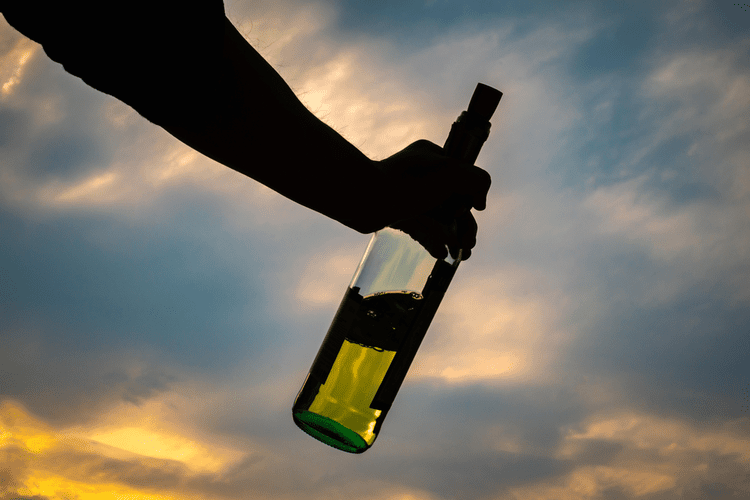
Recovery-oriented Systems of Care
There is evidence that research follow-up can have a positive effect on alcohol and drug use outcomes in treatment studies. Clifford and colleagues found that study participants who received more follow-ups had significantly better alcohol use outcomes.55 In a https://yogagorod.ru/esse-o-sporte-na-angliiskom-yazyke-sochinenie-sports-na-angliiskom-s-perevodom/ second study, participants were randomly assigned to one of four research assessment follow-up schedules that varied by frequency and duration. A randomized study in Switzerland evaluated a continuing care intervention using text messaging to monitor self-selected drinking goals.
Recovery and Recovery Support
This group of people with lived experience advises the NIH HEAL Initiative on research directions and ensures that research takes into consideration input from people and communities the initiative aims to benefit. Recognizing the transformative power of creative arts https://rrock.ru/?page=526&sort=1 in advancing recovery, in May 2024, the Office of Recovery launched the Art of Recovery, inviting visual art submissions from individuals with lived experience and their families. The digital gallery features over 280 selected artworks in celebration of National Recovery Month. 50.2 million American adults considered themselves to be in recovery from their substance use and/or mental health problems. 2 in 3 adults who ever had a mental health problem considered themselves to be recovering or in recovery.
Addiction Treatment Options for Drugs and Alcohol
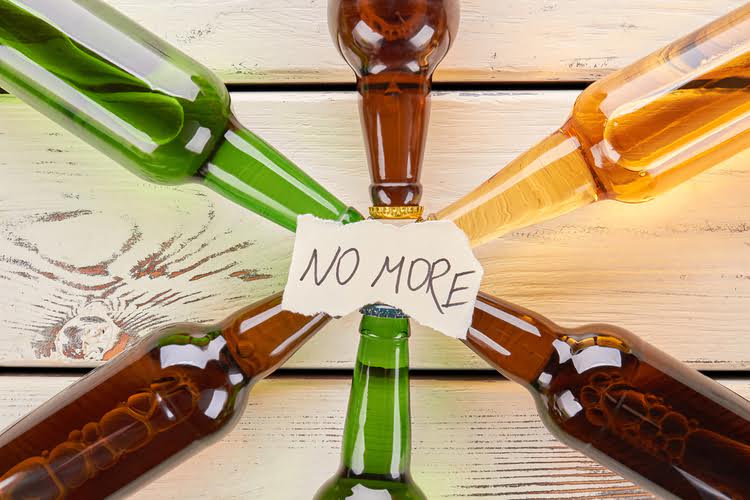
Relapse is common and experts see it as an opportunity for learning about and overcoming impediments to change. Viewing relapse as an opportunity for growth rather than failure increases your chances of long-term recovery. By reaching out to your therapist and support group for guidance, together, you identify any triggers that led to your relapse and develop strategies to manage stress more effectively. Sometimes, our recovery journey requires more frequent support group meetings and additional self-care practices.
- According to the National Institute on Drug Abuse, an estimated 40 to 60 percent of people trying to quit use of drugs, and 50 to 90 percent of those trying to quit alcohol, experience at least one slip up in their first four years of recovery.
- Other more recent RSS innovations and have yet to be studied extensively.45 Second, mutual aid groups advance specific pathways to recovery, in contrast to the general supports provided by other RSS.
- Having a counselor, therapist, or similar professional to fall back on during hard times can help prevent relapse.
- Regular communication with your support network can be particularly helpful, as it fosters a sense of accountability and provides a space to share concerns, successes, and setbacks.
- It may include rediscovering a work or social role, finding new recreational interests, or developing a new sense of spiritual connection.
Recovery Housing
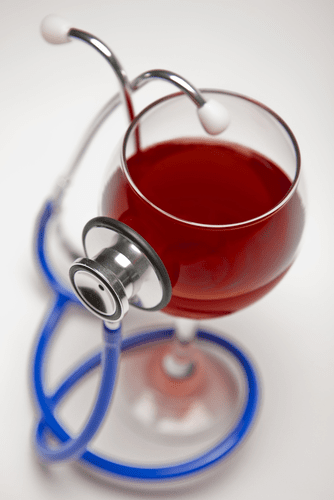
Addiction develops over time, in response to repeated substance use, as the action of drugs changes the way the brain responds to rewards and disables the ability to control desire for the drug. Understanding that relapses are often a part of the recovery process releases the shame around making mistakes. Relapses don’t signify failure; they offer opportunities to learn http://www.rock-archives.ru/rock-archive/o/ozzy_osbourne/osbourne_ozzy_musicians/gitarnyy_as_zakk_rasskazyvaet_o_novom_albome_ozzi_osborna.html and strengthen your recovery strategy.
Identifying Roofie Signs
If a person has been sexually assaulted after being spiked, they may experience depression, post-traumatic stress disorder (PTSD), flashbacks, or suicidal thoughts. Its effects, like sedation and memory loss, usually last 6 to 12 hours. In blood, it can be found for about a day, and in urine for a few days.
How can I tell if I’ve been roofied the day after?
Rohypnol, or flunitrazepam, has powerful effects on the brain, including slowing down brain activity. Sometimes, a bitter or salty taste to your drink can be a sign that someone has added something to your drink without your consent. It is also important to go out with people you trust and ensure everyone looks out for each other. If there are any concerns about content we have published, please reach out to us at
Preserving any potential evidence can how to recover from being roofied be crucial in cases of suspected drugging. Recognizing the symptoms of being roofied is crucial for identifying potential danger and seeking help promptly. The effects of these drugs can vary depending on the dosage, the individual’s tolerance, and the presence of other substances. Yes, many insurance plans provide coverage for addiction and mental health treatment, including services related to substance use disorders (SUDs) and mental health conditions. The extent of coverage can vary depending on the specific insurance plan, the type of treatment needed, and any applicable state or federal regulations.
- It works by slowing down brain activity, which can cause extreme sedation, memory loss, and confusion.
- If something feels off or you sense that you may have been roofied, it is essential to take your feelings seriously.
- This can be done through therapy, support groups, and other mental health treatments.
- If you’re not sure whether you were sexually assaulted, a medical examination can help determine if that occurred.
- The drugs commonly used to spike drinks are central nervous system depressants, which means they slow down brain activity, leading to various physical and mental impairments.
What are Roofies?
With tailored Addiction Treatment Programs and specialized support in Addiction Therapy Programs Boston, our treatment center offers a comprehensive approach to healing. Have you or someone you know going through the pain of getting roofied? Our caring team specializes in addressing the emotional, physical, and psychological consequences of drug-related abuse. Don’t face it alone—contact GBAC for professional advice and begin your recovery journey now. While people may experience varying symptoms or side effects when given a date rape substance, there are common and telling signs that you have to be aware of to determine whether you have been roofied.
What Are Rohypnol’s Effects on the Brain?
Individuals may escape the cycle of addiction, reclaim their independence, and open the door to a better and more meaningful future by getting treatment. Remember, when documenting the incident, be as thorough and accurate as possible. Include any conversations, actions, or suspicious behavior that you observed. It is also helpful to keep any receipts or proof of purchases related to the incident, such as bar tabs or receipts from the establishment where the incident occurred. We do not receive any fee or commission dependent upon which treatment or provider a caller chooses. Calls to numbers marked with (I) symbols will be answered or returned by one of the treatment providers listed in our Terms and Conditions, each of which is a paid advertiser.
Because of the powerful effects of these drugs, many people don’t realize they’ve been roofied until the next day. It’s not uncommon for those who’ve been slipped drugs to never really know what actually happened to them. People who have been drugged with roofies may experience tiredness, dizziness, disorientation, and poor judgment soon after ingesting the substance.
Recognizing the Signs: Key Indicators of Drink Spiking
We are here to help and provide guidance during these difficult situations. When attending social gatherings or events, it’s important to stay with trusted friends or individuals you feel comfortable with. Having a reliable support system can provide an additional layer of protection. Look out for each other and be aware of any changes in behavior or signs that someone may be experiencing the effects of a roofie.
They may suddenly feel more amorous and sexual and respond emotionally to others in ways that are not characteristic of them. Today, there are blue-colored tablets formulated to be visible in a drink, as well as the colorless Rohypnol tablets. They may also crush and dissolve the pills or tablets in a strong-flavored alcoholic drink. A roofie is a central nervous system depressant that, much like the prescription medicine Valium (diazepam), slows down the brain and relaxes the body.
Alcohol and allergies: Does it make them worse?

It is unclear if distilled alcohol made from corn is safe for people with corn allergies. To date, there is little strong evidence of this, though distillation is likely to leave behind only negligible amounts of the proteins from the corn, if any. If you have an extreme sulfite sensitivity or are at risk of anaphylaxis, you will need to carry an EpiPen to self-inject yourself with epinephrine (adrenaline) in the event of an emergency.
- And, Dr. Ngo-Hamilton notes, antihistamines aren’t just your typical Benadryl and Zyrtec—even liquid cough and cold medicines have antihistamines with similar effects.
- Preventing an alcohol allergy rash primarily involves avoidance of alcohol, especially types known to trigger your symptoms.
Health Challenges
Antihistamines block the body’s release of chemicals like histamine that cause hives, itching, and other allergy symptoms. When you have an allergic reaction to alcohol, your immune system is overreacting to an ingredient in the drink. If you have other allergies, you are more likely to have an allergy to alcohol, according to research from Switzerland.
Treatment and Management

People with an alcohol allergy should exercise caution when eating or drinking anything that they have not prepared themselves. Living with an alcohol allergy involves making lifestyle adaptations like total abstinence from alcohol and being vigilant about potential alcohol content in food and medication. You are now leaving thermofisher.com and going to a site owned and operated by an independent third party. Thermo Fisher Scientific is not responsible or liable for any content or services of any independent third-party site. Thermo Fisher Scientific does not represent independent third parties or the customer if the two enter into a transaction.
Alcohol Allergies and Alcohol Intolerance
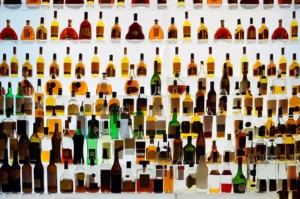
After all, knowing that I would be better off not doing something, but finding a way to justify doing it anyway, is also part of my personal brand. Access videos and webinars delivered by key experts in the field of allergy. Get detailed information on whole allergens and allergen components. Avoiding alcohol is the only sure way to prevent an alcohol-related reaction.
Nettle Tea
The polyphenols in whiskey have been shown to decrease “bad” cholesterol (LDL) and increase “good” cholesterol (HDL) levels, and reduce triglycerides, or fat in your blood. Those with a genuine alcohol allergy should completely avoid alcohol. Some signs of anaphylaxis include swelling, itching, tightening of the throat and mouth, a weak or rapid pulse, fainting, shock, and loss of consciousness. When you have an intolerance to alcohol, your body is lacking an enzyme that is needed to process alcohol. If you do not have the enzyme or the enzyme does not work properly, then the toxic product of alcohol, called acetaldehyde, will build up. High quality and affordable health care is available on your schedule.
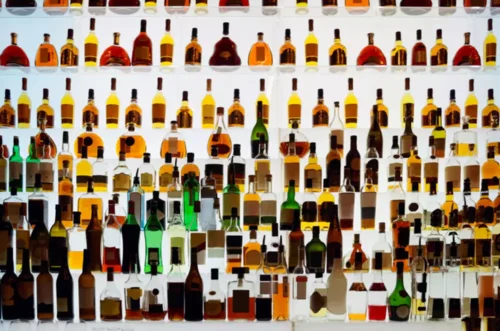
IgE is an antibody that suggests that a person may have allergies. Genuine alcohol allergies, in which people only react to the alcohol, are much less frequent. However, only two of the 68 participants have a medically diagnosed allergy. This figure represents people whose symptoms are traceable to what the manufacturers made the product from and its production process, not the alcohol itself. For severe allergies, avoid the allergen completely, and always carry does whiskey help with allergies your EpiPen with you in case of an emergency. You may be more likely to have reactions to alcohol if you have any of these factors.
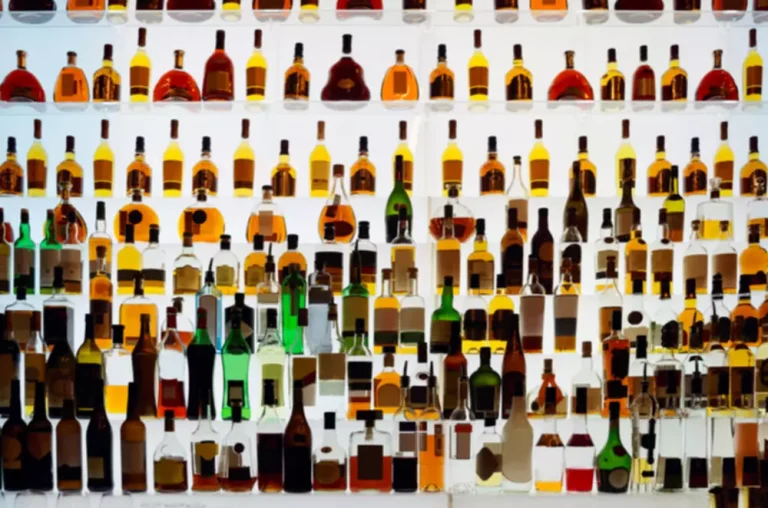
How to tell if you are allergic to alcohol itself

If you’re taking medication, check with your doctor to see if it’s OK to drink alcohol while you take it. This can happen to anybody, she adds, regardless of how regularly they do or don’t pop an antihistamine. And, Dr. Ngo-Hamilton notes, antihistamines aren’t just your typical Benadryl and Zyrtec—even liquid cough and cold medicines have antihistamines with similar effects. In other words, it works on the surface of your skin, but not as a disinfectant when you drink it.
What is a Halfway House? Benefits, Rules & Cost

While both are transitional housing solutions for people in early recovery, their clientele, structure, staff, and funding differ. Additionally, the number of federally approved halfway houses has declined in recent years. Back in the early 1900s, when a person received parole for good behavior, the court often ordered them to stay in one of these homes.
- Halfway houses enforce rules and guidelines, holding residents accountable for their actions.
- It advances research, data and design in the City’s program and policy development, service delivery, and budget decisions.
- People get free from the addiction, remain abstinent for a long time, and deal with underlying problems through ongoing therapy and monitoring.
- If you or a loved one is struggling with alcohol or substance misuse, American Addiction Centers can help you find treatment and understand post-treatment options such as halfway houses.
Your Addiction Doesn’t Have To Define Who You Are.

Most houses are forwomen or men only, so you do not live with people of the opposite sex. At the start of the 21st century, correctional populations reached record levels and were continuing to increase, and institutional overcrowding became epidemic in some jurisdictions. If you are looking for a halfway house or need Halfway House vs Sober Living more information about the process, it’s important to research and explore all available resources.
Compliance with Program Requirements:
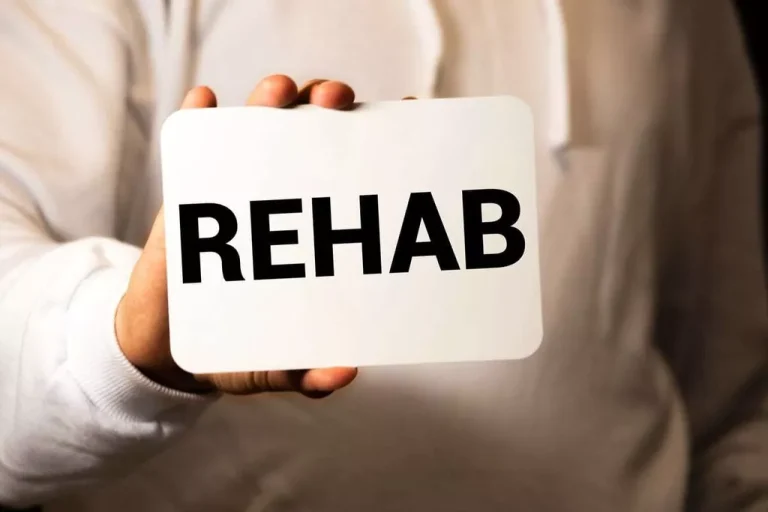
Some halfway houses also require residents to work or seek gainful employment during their stay. In some cases, residents may be expected to contribute financially to cover rent and household expenses. It is important to note that specific halfway houses may have additional or different criteria for admission, so it is advisable to inquire with the specific facility for their specific requirements. Federal RRC residents3 are generally subject to two stages of confinement within the facility that lead to a final period of home confinement.

Your Journey To Recovery Starts Here
Referrals to other services can help people to access additional support, such as medical care or mental health care. These transitional opportunities aim to facilitate the transition to a healthy, law-abiding lifestyle, providing individuals with the necessary support and resources to navigate the challenges of their reentry journey. Residents of halfway houses have described deeply inadequate sanitation and disease prevention on top of the lack of social distancing. In the now-defunct Hope Village in Washington, D.C., residents reported packed dining halls, makeshift PPE, and restricted access to cleaning products and sanitation supplies.
Mental Health Support
Another facet of halfway houses is that some impose a curfew to show that the residents are well-rested and have a healthy sleep schedule. The key purposes of halfway houses are to help people remain sober, develop the required living skills, find stable accommodation and jobs, and ultimately get back into society as productive members. Those escaping difficult circumstances highly depend on halfway houses during rehabilitation. Staff may assist residents in getting a steady job through a network of local employers, private companies, local job fairs, and training seminars in resume writing and interview techniques.

How Long Does Alcohol Stay In Your System? Timeline + Video

When your BAC reaches this point, you are at the highest risk of losing consciousness, alcohol overdose, and death. Call your local emergency services if you suspect alcohol poisoning in a friend or loved one. The quicker you seek help, the more likely you are to minimize potentially fatal complications. However, the safest option for nursing people is not to drink any alcohol. Blood alcohol concentration (BAC) refers to the amount of alcohol in your blood to the amount of water in your blood.

How Long Do The Effects of Alcohol Last?
Consuming foods rich in sugar can further throw off your blood sugar levels, making the effects of the hangover last longer. There are a few simple, natural methods that you can try to help you reduce hangover symptoms and regain alertness. These methods will not help your body to process alcohol any quicker and you will still remain intoxicated and impaired. Also known as your blood alcohol concentration, or BAC, .08 percent counts as drunk from a legal perspective. Once your BAC hits can i pee alcohol out of my system .08 percent, you’ll have the tell-tale signs of being drunk. You’ll have trouble with things like speech, balance, coordination, and reaction times.
What Happens During Ethanol Urine & EtG Alcohol Tests?

Get a ride-hailing service, even call a friend before you put yourself and others in danger. Have a designated driver or a ride-hailing service ready to go if you plan on drinking enough that your judgment will be impaired. At Ria, we offer weekly meetings with certified counselors to help members stay on track and build skills for long-term change. Quitting alcohol completely can be a challenge, but there are more ways to do it than ever before.

Amount of Alcohol Consumed
- Medical supervision during the detox phase is highly recommended, especially for those who have been heavy drinkers or have a history of severe withdrawal symptoms.
- Have a designated driver or a ride-hailing service ready to go if you plan on drinking enough that your judgment will be impaired.
- Navigating the aftereffects of alcohol consumption is a common challenge, sparking widespread curiosity about how to efficiently clear it from the system.
Alcohol can be metabolized faster when you have eaten prior to drinking. When you have food in your stomach, your ADH levels are higher, and your body can process alcohol more efficiently. Food also keeps alcohol in the stomach longer, so some of it is metabolized before traveling to the small intestine.

An electrolyte drink will help your body hold the fluids and rehydrate faster. Alcohol’s impact on Substance abuse your body begins with the first sip, however long-term use of alcohol can take its toll on your body. The short-term effects of alcohol can be broken down into three areas. A small dose of alcohol (1 to 2 drinks) lowers inhibitions and the ability to concentrate.
The Difference Between Alcohol and Ethanol
The suffix -ol in non-IUPAC names (such as paracetamol or cholesterol) also typically indicates that the substance is an alcohol. However, some compounds that contain hydroxyl functional groups have trivial names that do not include the suffix -ol or the prefix hydroxy-, e.g. the sugars glucose and sucrose. The term alcohol originally referred to the primary alcohol ethanol (ethyl alcohol), which is used as a drug and is the main alcohol present in alcoholic drinks. Drinking alcohols are made from ethanol while rubbing alcohol is diluted isopropyl alcohol.
Nomenclature of Alcohols
MTBE belongs to a group of chemicals known as oxygenates due to their capacity to increase the oxygen content of gasoline. When a second -OH is added to ethanol at the other carbon, this created a molecule called 1,2-ethanediol. The “diol” reveals that the substance is a double alcohol with two hydroxyls, and the “1,2-” prefix indicates that they are attached to different carbons. This alcohol is more commonly called ethylene glycol and is the main component of antifreeze. While methanol has one carbon atom, ethanol, the next largest and derived from the pure hydrocarbon ethane, has two.
Conclusion on the types of alcohol and consumption
Alcohols, a class of organic compounds, are characterized by the presence of a hydroxyl (-OH) functional group. The chemistry of alcohols is diverse and plays a crucial role in various industrial, medicinal, and everyday applications. One fundamental aspect of alcohol chemistry is their classification based on the carbon atom to which the hydroxyl group is attached. Alcohols are polar due to the presence of the hydroxyl group. Due to hydrogen bonding, alcohols tend to have higher boiling points than ethers and related hydrocarbons. Each alcohol has its own characteristic melting point, boiling point, and toxicity.
Thus, the carbon atom bearing the OH group must be able to release one of its attached atoms to form the double bond. The carbon-to-hydrogen bonding is easily broken under oxidative conditions, but carbon-to-carbon bonds are not. Alcohols are organic compounds that are composed of one or more hydroxyl groups attached to an alkyl group. These alcoholic compounds have characteristic properties that are useful in identifying them. It is also known as drinking alcohol since it is included in many types of beverages.
- This alcohol is more commonly called ethylene glycol and is the main component of antifreeze.
- Ethanol and water, for example, are mixable (“miscible” is the word we actually use) in all proportions.
- Ethyl alcohol molecules are capable of forming strong hydrogen bonds due to the presence of –OH groups.
- Having twice as many hydroxyl groups, we would expect it to be even more polar than propanol, and thus have a higher boiling point.
- Coma, seizures, and dangerously low blood sugar are some of the possible side effects.
Alkenes react with N-bromosuccinimide and water in halohydrin formation reaction. Amines can be converted to diazonium salts, which are then hydrolyzed. Rubbing alcohol is a diluted form of isopropyl alcohol, it is not ethanol.
The flash point of pure ethanol is 13 °C (55 °F),89 but may be influenced very slightly by atmospheric composition such as pressure and humidity. Ethanol mixtures can ignite below average room temperature. There are laws regulating the sale, exportation/importation, taxation, manufacturing, consumption, and possession of alcoholic beverages. Ethanol has a specific chemical structure (C2H5OH), distinguishing it from other alcohols.
The most common chemical reactions of ethyl alcohol include dehydration, halogenation, combustion and oxidation. While ethanol is a type of alcohol commonly found in alcoholic beverages, not all alcohols are suitable for consumption. Many alcohols, such as methanol or isopropyl alcohol, are toxic and should not be ingested.
3: Alcohols and Ethers
Hydroxylation is the means by which the body processes many strongest vodkas poisons, converting lipophilic compounds into hydrophilic derivatives that are more readily excreted. Enzymes called hydroxylases and oxidases facilitate these conversions. The suffix -ol appears in the International Union of Pure and Applied Chemistry (IUPAC) chemical name of all substances where the hydroxyl group is the functional group with the highest priority. When a higher priority group is present in the compound, the prefix hydroxy- is used in its IUPAC name.
Carbohydrates can store energy, such as the polysaccharides glycogen in animals or starch in plants. They also provide structural support, such as the polysaccharide cellulose in plants and the modified polysaccharide chitin in fungi and animals. The sugars ribose and deoxyribose are components of the backbones of RNA and DNA, respectively. Other sugars play key roles in the function of the immune system, in cell-cell recognition, and in many other biological roles. To produce ethanol from starchy materials such as cereals, the starch must first be converted into sugars. In brewing beer, this has traditionally been accomplished by allowing the grain to germinate, or malt, which produces the enzyme amylase.
How Does Alcohol Affect Your Mental Health?

The prevalence of AUD among persons treated for anxiety disorders is in the range of 20% to 40%,2,15 so it is important to be alert to signs of anxiety disorders (see below) in patients with AUD and vice versa. As shown in the schematic, AUD and other mental health disorders occur across a spectrum from lower to higher levels of severity. For patients in the middle, with up to a moderate level of severity of AUD or the psychiatric disorder or both, a decision to refer should be based on the level of comfort and clinical judgment of the provider. Here, we briefly describe the causes and effects of co-occurrence, the mental health disorders that commonly co-occur with AUD, and the treatment implications for primary care and other healthcare professionals. We start with a visual model of care that indicates when to consider a referral.

Drinkchat
- This could have a carryover effect on depression since loneliness and lack of social support are linked to depression.
- When treating depression and substance abuse, consult with a mental health professional and/or an addiction specialist who can provide resources and recommendations for possible treatment options.
- If you or a loved one is struggling with a co-occurring mental health disorder and alcohol addiction, it’s important to remember that you are not alone.
- People who have both tend to have more severe symptoms than those who have only one disorder.
- For example, AUD that develops after the onset of a depressive disorder and is characterized by coping motives for alcohol use may differ critically from a depressive disorder that develops following chronic alcohol administration.
In this section, trials that used medication and psychotherapy treatments are discussed, as are the effects of those treatments on depressive symptoms and AUD symptoms. There is a lot that we still need to understand about the link between alcohol and depression, and this is an emerging area of research. Existing research indicates that depression can cause alcohol overuse, and alcohol overuse can cause depression.
- The link between depression and alcohol use disorder is complex.
- If you’re battling depression, alcohol isn’t going to make you feel better.
- A 2012 study found that 63.8% of people who are dependent on alcohol are also depressed.
- Drinking a lot may worsen these feelings, which may actually drive further drinking.
- These tests help them calculate your risk factors for either condition.
Diagnosis of depression in alcohol dependence: changes in prevalence with drinking status
When you have healthy habits in place to cope with unwanted feelings, you’ll probably find it easier to use these strategies to push back against distressing emotions you might https://ecosoberhouse.com/article/how-to-rebuild-your-life-after-addiction-how-to-regain-trust/ experience while drinking. Bad sleep can easily affect your mood the next day, since exhaustion and lingering physical symptoms can make it tough to concentrate. You might feel depressed after drinking because alcohol itself is a depressant. While alcohol use can directly trigger feelings of depression, it can also contribute to symptoms in more indirect ways. The more you drink, however, the more likely your emotional state will begin plummeting back down. Sometimes, alcohol can make you feel even worse than you did before.
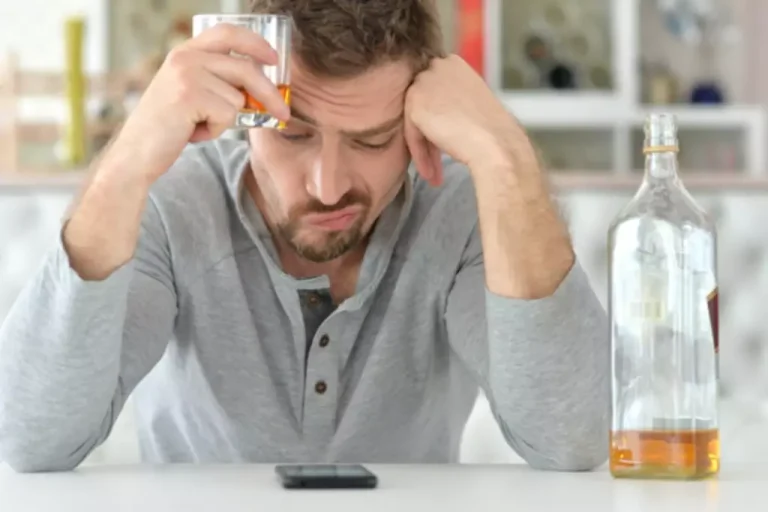
Ethnic diversity and health outcomes
- Everyone feels blue or down from time to time, and people often say that they feel “depressed” during these temporary bouts of sadness.
- Alcohol slows down processes in your brain and central nervous system, and can initially make you feel less inhibited.7 In the short-term, you might feel more relaxed – but these effects wear off quickly.
- However, evidence suggests that more than 25% of people in treatment have experienced a substance-induced depressive episode in their lifetime.
- When it comes to diagnosing an alcohol use disorder and a major depressive disorder, it’s important to address them simultaneously, as they can significantly impact your recovery.
Even if they don’t improve immediately, you’ll probably have an easier time doing something about them when you don’t have to deal with physical symptoms, too. If you already feel a little low, giving yourself a hard time for overdoing the alcohol probably won’t improve matters. You might also want to consider natural supplements such as tyrosine, 5-HTP, and ashwagandha to help rebalance your brain’s neurotransmitters. Just check with your doctor before trying these, especially if you’re taking medication. Additionally, genetics may influence how likely you are to develop depression and a substance use disorder (SUD). This article covers everything you need to know about the connection between alcohol and depression.
- John C. Umhau, MD, MPH, CPE is board-certified in addiction medicine and preventative medicine.
- It also includes binge drinking — a pattern of drinking where a male has five or more drinks within two hours or a female has at least four drinks within two hours.
- Depression is different to anxiety (a feeling of worry or fear about what might happen, inability to concentrate and – for some people – panic attacks).

During therapy, you can learn coping mechanisms that can help you return to life without drinking. However, for the best results, your doctor will likely treat them together. It’s not always clear if depression makes you drink or vice versa. Studies of twins have shown that the same things that lead to heavy drinking in families also make depression more likely. Depending on the severity of the disorders, you may need more intense treatment, such as outpatient care, integrated assertive community (ACT) treatment alcohol and depression or a residential stay, which may be required to begin or continue your recovery journey.
Danh mục tin tức
- ! Без рубрики
- ++novPU
- 1
- 1 win
- 1w
- 1win
- 1Win AZ Casino
- 1Win Brasil
- 1win Brazil
- 1win casino
- 1win casino spanish
- 1win fr
- 1win India
- 1WIN Official In Russia
- 1win Turkiye
- 1win uzbekistan
- 1winRussia
- 1xbet apk
- 1xbet Casino AZ
- 1xbet casino french
- 1xbet india
- 1xbet Korea
- 1xbet KR
- 1xbet malaysia
- 1xbet russia
- 1xbet russian
- 1xbet russian1
- 1xSlots
- 2
- 22 Bet
- 222
- 22bet IT
- 240651 done
- 3 Reyes Casino
- 7k casino
- 9400_wa
- 9500_wa
- 9600_wa
- abilify
- adderall
- AI News
- anticoagulantia
- apotheek
- Aviator
- aviator brazil
- aviator casino DE
- aviator IN
- aviator mz
- aviator ng
- Bankobet
- Basaribet
- bbrbet mx
- Best Australian Online Casinos and Pokies
- Best Australian Online Casinos and Pokies with PayID in 2025
- bhdec
- bizzo casino
- blog
- book of ra
- book of ra it
- Bookkeeping
- btbtnov
- casino
- casino 7k
- casino en ligne
- casino en ligne fr
- casino en línea
- casino onlina ca
- casino online
- casino online 1win
- casino online ar
- casinò online it
- casino-glory india
- casinos
- Casinos en Línea
- cassino online
- CheckBasinas
- Chưa được phân loại
- crazy time
- Cryptoboss Сasino
- Cryptocurrency exchange
- Cryptocurrency service
- csdino
- diabete
- diabetes
- Dịch vụ
- Dịch vụ ship hộ
- dk
- done
- done 15381
- done 240244
- done now
- DragonMoney
- Đặt hàng trung quốc
- e-Kitap Depolama
- ed
- en
- epilepsi
- epilepsie
- epilessia
- esteroides
- FAQ
- fi
- Financial Marketplace in the USA
- FinTech
- Forex Trading
- fr
- Gama Casino
- Gambling
- gewichtsverlies
- Gigabet cassino
- hd porn
- Internet Business, Audio-Video Streaming
- it
- IT Education
- IT Образование
- ivermectine
- Kasyno Online PL
- king johnnie
- ledger live
- lera 123
- levitra
- Lex Casino
- lucky jet
- Masalbet
- mostbet
- Mostbet Casino AZ
- mostbet italy
- mostbet ozbekistonda
- Mostbet Russia
- mostbet tr
- New
- New Post
- News
- nl
- online casino
- online casino au
- onlone casino ES
- ozwin au casino
- pb_dec
- PDF eBooks Kulübü
- pelican casino PL
- pharmacie
- Pin Up Brazil
- Pin Up Casino
- Pin Up Peru
- pinco
- Plinko
- plinko in
- plinko UK
- potency
- pujan
- Ramenbet
- ricky casino australia
- ritalin
- rybelsus
- se
- Slots
- Sober living
- Software development
- Stake Casino
- StarzBet Casino
- steroid
- steroides
- sweet bonanza TR
- Tin tức
- Tin tuyển dụng
- Unlim казино
- Vận chuyển hàng trung quốc
- verde casino hungary
- Vovan Casino
- Ауф казино
- Водка Казино
- займы онлайн
- Комета Казино
- Лекс Казино
- Финтех
- Форекс Брокеры
- Форекс обучение
- Швеция
- 온라인 카지노 사이트
Tin nổi bật
Bài viết mới
-
Turkey Aviator – online bookmakers odds
Posted on
Tags
- chuyên nhập hàng trung quốc
- cách nhập hàng quảng châu
- cách nhập hàng taobao
- cách nhập hàng Trung Quốc
- cách nhập hàng trung quốc giá rẻ
- cách nhập hàng trên 1688
- cách nhập hàng trên taobao
- cách nhập hàng từ 1688
- cách nhập hàng từ taobao
- giá order hàng trung quốc
- hướng dẫn nhập hàng 1688
- hướng dẫn nhập hàng Trung Quốc
- hướng dẫn nhập hàng trên taobao
- khuyến mãi ngày 11.11
- kinh nghiệm nhập hàng 1688
- kinh nghiệm nhập hàng từ taobao
- lấy hàng từ trung quốc về bán
- muốn nhập hàng từ trung quốc
- mối nhập hàng trung quốc
- nhập buôn hàng quảng châu
- nhập giày quảng châu
- nhập hàng 1688
- nhập hàng quảng châu
- nhập hàng quảng châu giá rẻ
- nhập hàng quảng châu trung quốc
- nhập hàng quảng châu tận gốc
- nhập hàng sỉ trung quốc
- nhập hàng taobao
- nhập hàng taobao 1688
- nhập hàng taobao giá rẻ
- nhập hàng taobao uy tín
- nhập hàng taobao về bán
- nhập hàng Trung Quốc
- nhập hàng trung quốc giá sỉ
- nhập hàng Trung Quốc uy tín
- nhập hàng Trung Quốc về Việt Nam
- nhập hàng trên taobao
- Nhập hàng trênTaobao
- nhập khẩu hàng trung quốc
- nhập quần áo quảng châu
- Taobao
- tet nguyen dan
- thong bao lich nghi
- tìm nguồn hàng trung quốc giá rẻ
- vận chuyển Trung Quốc Việt Nam
 Bonuses for new players
Bonuses for new players 
